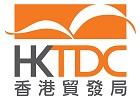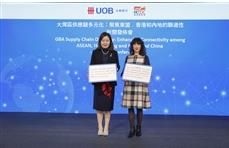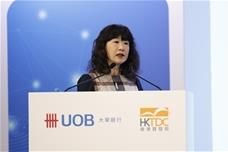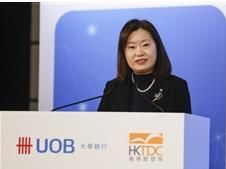
HONG KONG, Jan 9, 2025 - (ACN Newswire) – More than 90% of manufacturing businesses in the Greater Bay Area (GBA) have either completed their supply chain transformation or have the process well underway. This is the key finding of GBA Supply Chain Diversity: Enhancing Connectivity Among ASEAN, Hong Kong, and the Mainland, a joint report published today by the Hong Kong Trade Development Council (HKTDC) and UOB Hong Kong.
The report also found that 72% of GBA-based manufacturing companies have already committed to actively bolstering the resilience of their supply chains, with the remainder expected to follow suit within two years. In another positive finding, a significant proportion of survey respondents saw Hong Kong as an indispensable link between the GBA and the ASEAN bloc, while also having a high regard for the city’s expertise in the green finance and professional services sectors.
The report’s conclusions were based on an in-depth survey of more than 600 GBA-based companies conducted in the third quarter of 2024. Within its comprehensive remit, the research also set out to determine the key drivers of supply chain diversification, identify the overseas markets GBA businesses are primarily targeting and evaluate the success of the green and sustainable development initiatives implemented by such enterprises.
In order to track the evolving trends, the survey findings were compared with the results of two HKTDC-UOB Hong Kong studies conducted in 2023: Navigating Connectivity – Exploring ASEAN Opportunities for the Greater Bay Area and Sustainability in the GBA: Unlocking Opportunities and Empowering Growth.
Strengthening Supply Chain Resilience
For most GBA-based businesses, the mainland remained their preferred choice when it came to both diversifying their supply chain arrangements and broadening their range of production options. For those looking to diversify their supply chains by incorporating overseas locations, ASEAN was the number one choice, with 84% of the surveyed enterprises indicating they had plans in place to maintain or expand their production/sourcing activities within the bloc. The primary reason for this preference (as cited by 39% of respondents) was the positive nature of China-ASEAN trade relations, with the benefits accruing from both the Regional Comprehensive Economic Partnership (RCEP) agreement and the Belt and Road Initiative (BRI) also widely acknowledged.
Of the individual ASEAN markets, Singapore, Malaysia and Indonesia were the preferred choices for both current and future business activities. The rising level of business interest in the Philippines, Cambodia, Laos and Brunei, however, was also notable.
The key challenges to successfully entering the various ASEAN markets, meanwhile, were seen as finding suitable and capable local service providers (as cited by 32% of respondents), followed by maintaining data security (25%) and finding talent with the required expertise (25%). Tellingly, many of the issues designated as primary concerns in the 2023 study – difficulties in navigating local government policies and regulations relating to foreign investment and culture/language barriers – featured less prominently in the more recent survey.
In line with the perceived success of the overall upgrade programme, the majority of survey respondents (60%) now see the GBA’s supply chains as characterised by a high level of innovation, collectively underpinned by the extensive deployment of effective digital solutions.
ESG and Sustainability
In addition to their focus on bolstering the resilience of their supply chains, many GBA businesses remained committed to accelerating their ESG initiatives. As a sign of this, 81% of survey respondents had active green and sustainable development programmes in place – 16 percentage points higher than the 65% recorded in 2023.
Respondents also indicated a greater willingness to increase their level of ESG investment, with an average increase of about 25% planned over the next two years. This will see the relevant budget allocations average HK$462,535, well above the 2023 figure of HK$371,333.
Commenting on the findings, Irina Fan, the HKTDC’s Director of Research said: “GBA companies are now demonstrating a real commitment to sustainability, as shown by the planned 25% increase in ESG investment over the next two years. As there are about three million enterprises in the GBA, this could equate to total ESG-related investment of some HK$1.3 trillion.”
Adaline Zheng, CEO of UOB Hong Kong, said: “As businesses in GBA continue to evolve and adapt to emerging trends, we are committed to supporting their journey towards sustainable growth and resilience. By leveraging our robust foreign direct investment advisory unit and strong Hong Kong platform, we provide tailored solutions and insights to facilitate GBA companies’ expansion into ASEAN markets. The increasing focus on diversifying supply chains and enhancing connectivity with ASEAN underscores the pivotal role of collaboration and innovation in today’s dynamic market. Together, we empower businesses to not only thrive in a competitive landscape but also to contribute positively to our shared future.”
Hong Kong: The GBA-ASEAN Super Connector
Another clear finding of the 2024 survey was the success Hong Kong has found in carving out its unique niche as the GBA-ASEAN super-connector.
This was reflected in the score GBA-based businesses accorded both Hong Kong’s Connectivity with the ASEAN Bloc and Hong Kong's Connectivity with Mainland GBA Cities – eight out of 10, a one-point year-on-year increase.
In a further endorsement, 80% of 2024 respondents indicated a willingness to both learn more about Hong Kong’s green professional services and to use such services more frequently, a significant increase on the 2023 figure of 70%.
Notes for Editors
The GBA is the Greater Bay Area (also known as the Guangdong–Hong Kong–Macao Greater Bay Area), a priority development area that comprises nine mainland cities in Guangdong province (Guangzhou, Shenzhen, Zhuhai, Foshan, Dongguan, Zhongshan, Jiangmen, Huizhou, and Zhaoqing) as well as two Special Administrative Regions, Hong Kong, and Macao.
Related materials
- HKTDC Research: https://research.hktdc.com/en
- The report in Chinese – GBA Supply Chain Diversity: Enhancing Connectivity Among ASEAN, Hong Kong and Mainland China can be downloaded from the websites of HKTDC and UOB Hong Kong.
Photos Download: https://bit.ly/4j6hvvj
|
|
|
Adaline Zheng, CEO of UOB Hong Kong (left) and Irina Fan, Director of HKTDC Research (right), release the GBA Supply Chain Diversity: Enhancing Connectivity among ASEAN, Hong Kong and Mainland China research report |
|
|
|
Irina Fan, Director of HKTDC Research |
|
|
|
Adaline Zheng, CEO of UOB Hong Kong |
Media enquiries
HKTDC’s Communications & Public Affairs Department:
Katy Wong Tel: (852) 2584 4524 Email: katy.ky.wong@@hktdc.org
Clayton Lauw Tel: (852) 2584 4472 Email: clayton.y.lauw@hktdc.org
UOB Hong Kong:
Susanna Liu Tel: (852) 2123 7537 Email: susanna.liuwy@uobgroup.com
Sarah Tsang Tel: (852) 2123 7536 Email: sarah.tsangsw@uobgroup.com
Yuan Tung Financial Relations:
Tiffany Leung Tel: (852) 3428 2361 Email: tleung@yuantung.com.hk
Hing-fung Wong Tel: (852) 3428 3122 Email: hfwong@yuantung.com.hk
About HKTDC
The Hong Kong Trade Development Council (HKTDC) is a statutory body established in 1966 to promote, assist and develop Hong Kong's trade. With over 50 offices globally, including 13 in Mainland China, the HKTDC promotes Hong Kong as a two-way global investment and business hub. The HKTDC organises international exhibitions, conferences and business missions to create business opportunities for companies, particularly small and medium-sized enterprises (SMEs), in the mainland and international markets. The HKTDC also provides up-to-date market insights and product information via research reports and digital news channels. For more information, please visit: www.hktdc.com/aboutus.
About UOB
UOB is a leading bank in Asia. Operating through its head office in Singapore and banking subsidiaries in China, Indonesia, Malaysia, Thailand and Vietnam, UOB has a global network of around 500 offices in 19 countries and territories in Asia Pacific, Europe and North America. Since its incorporation in 1935, UOB has grown organically and through a series of strategic acquisitions. Today, UOB is rated among the world’s top banks: Aa1 by Moody’s Investors Service and AA- by both S&P Global Ratings and Fitch Ratings.
For nearly nine decades, UOB has adopted a customer-centric approach to create long-term value by staying relevant through its enterprising spirit and doing right by its customers. UOB is focused on building the future of ASEAN – for the people and businesses within, and connecting with, ASEAN.
The Bank connects businesses to opportunities in the region with its unparalleled regional footprint and leverages data and insights to innovate and create personalised banking experiences and solutions catering to each customer’s unique needs and evolving preferences. UOB is also committed to helping businesses forge a sustainable future, by fostering social inclusiveness, creating positive environmental impact and pursuing economic progress. UOB believes in being a responsible financial services provider and is steadfast in its support of art, social development of children and education, doing right by its communities and stakeholders.
]]>Source: HKTDC
Copyright 2025 ACN Newswire . All rights reserved.



